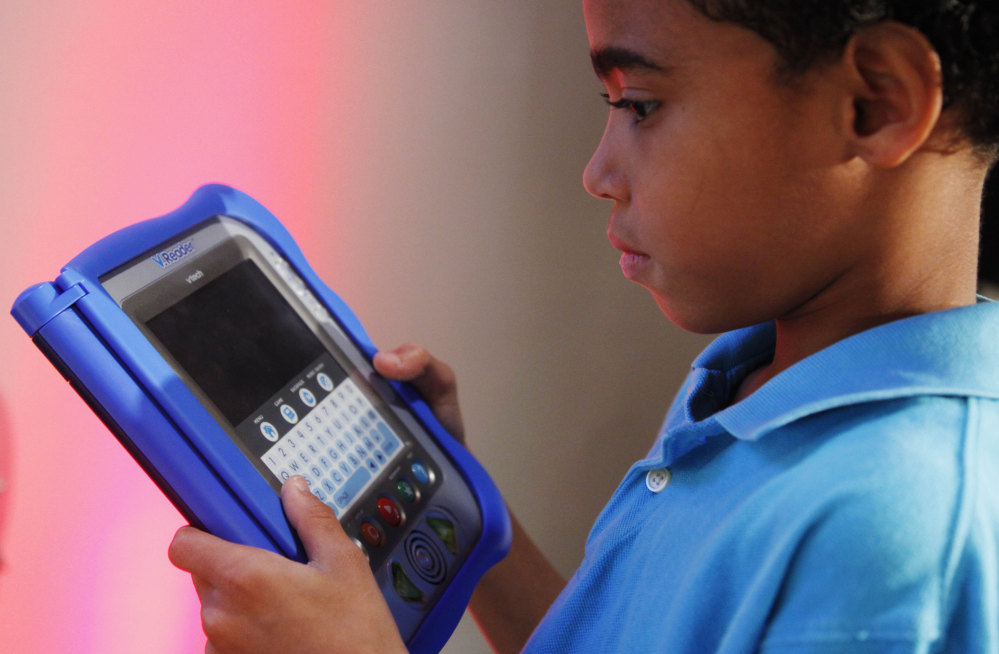Our cars, our homes, our appliances and even our toys: Things around us are going to keep getting smarter. In 2016, we’ll entrust even more of our lives and their intimate details to machines – not to mention the companies that run them.
Are we ready for that?
You might, for instance, like the idea of turning on your TV with a spoken command – no more fumbling for the remote! But for that to work, the TV needs to be listening all the time, even when you’re not watching. And even when you’re discussing something extremely personal, or engaged in some other activity to which you’d rather not invite eavesdroppers.
How much should you worry? Maybe your TV never records any of your casual conversations. Or maybe its manufacturer is recording all that, but just to find ways to make the TV better at understanding what you want it to do. Or maybe it retains everything it hears for some other hidden purpose.
You may never know for sure. At best, you can hope the company keeps its promises on privacy. More important, you have to trust that its computer systems are really secure, or those promises are suddenly worthless. That part is increasingly difficult to guarantee – or believe – as hacking becomes routine.
And here’s the chief quandary: Every technological benefit comes with a cost in the form of a threat to privacy. Yet not paying that price has its own cost: an inability to participate in some of technology’s greater achievements.
Because smart gadgets thrive on data – data about you and your habits, data about what large numbers of people do or say or appear to want in particular situations – it’s difficult not to share pretty much everything with them. Doing otherwise would be like turning off your phone’s location services, which disables many of its most useful features.
The consequences aren’t restricted to phones and TVs:
• Kids will be able to talk to more toys and get personalized, computer-generated responses. Does the “don’t talk to strangers” rule apply if the stranger is the Hello Barbie talking doll or Dino, the dinosaur powered by IBM’s Watson artificial-intelligence system?
• Cars will work with GPS technology and sensors in parking meters, roads and home appliances to help route you around traffic and turn on your living-room lights as you approach the driveway. But that can also generate a detailed record of your whereabouts.
• Thermostats from Nest and others will get smarter at conserving energy when you’re away. Potential burglars might find that information handy.
• Home security cameras are getting cheaper and more plentiful, but they’re sometimes insecure themselves, especially if you set them up clumsily. There’s already a website devoted to showing video from cameras with no passwords. Though they are mostly outdoor or business cameras, one was trained on a baby’s crib, and another in a living room.
• Wearable health devices will track your heart rate, fitness levels and more – and share achievements with friends and family. But slacking off may carry a heavier cost than those extra holiday pounds, particularly if your insurance company yanks discounts for meeting fitness goals.
• Software from Google and Facebook will get even more refined to help you cut through the noise. That’s great if Facebook is showing you posts from friends you already interact the most with, but will a long-lost friend’s plea for help go unanswered because you don’t see it?
The pending onslaught of privacy trade-offs might seem trivial when it comes to a talking – and listening – Barbie. But maybe it’s less so when your phone knows enough about you to remind you it’s time to leave for an important interview (if the alternative would be losing a shot at that job) or your smart home can really tell you if you turned off the oven before leaving for an international trip.
“The encroachments on our privacy are often self-inflicted in the sense that we will accept the trade-off one bit at a time,” says John Palfrey, co-author of “Interop: The Promise and Perils of Highly Interconnected Systems.
And these trade-offs can be quite subtle. Technological advances typically offer immediate, tangible benefits that, once you’ve put enough of them together, can indeed revolutionize daily life. Can you imagine living your life without a smartphone? A few years from now, you might goggle at the thought of managing your day without constant advice from Siri or “OK Google.”
As for the risks, they’ll tend to be diffuse, abstract and often difficult to ascertain even if you’re paying attention – and most people won’t. In a study released Wednesday, the Pew Research Center says about half of American adults have no confidence that they understand what’s being done with their data, and about a third are discouraged by the amount of effort needed to get that understanding.
In short, convenience usually wins.
Copy the Story LinkSend questions/comments to the editors.



Success. Please wait for the page to reload. If the page does not reload within 5 seconds, please refresh the page.
Enter your email and password to access comments.
Hi, to comment on stories you must . This profile is in addition to your subscription and website login.
Already have a commenting profile? .
Invalid username/password.
Please check your email to confirm and complete your registration.
Only subscribers are eligible to post comments. Please subscribe or login first for digital access. Here’s why.
Use the form below to reset your password. When you've submitted your account email, we will send an email with a reset code.